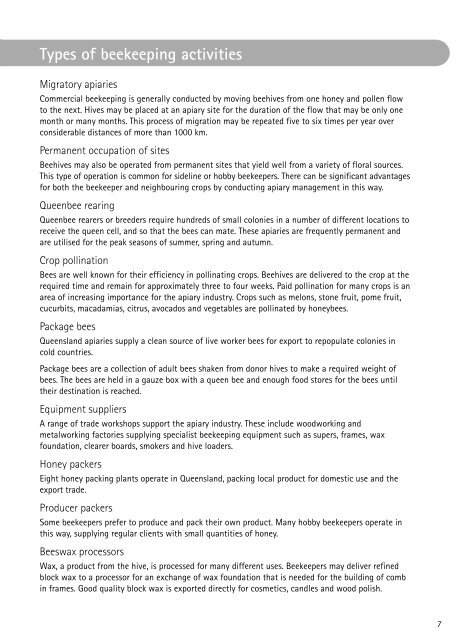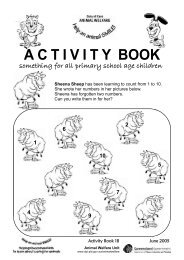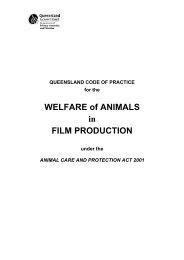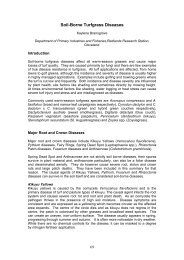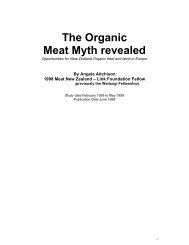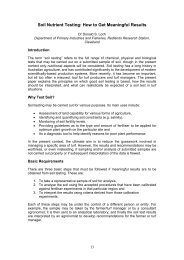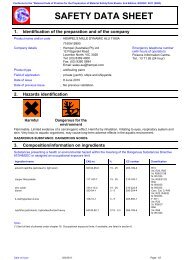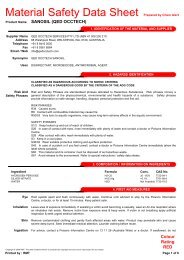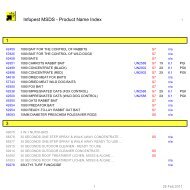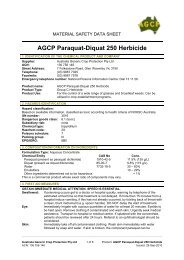Guidelines For Rural Beekeeping In Queensland
Guidelines For Rural Beekeeping In Queensland
Guidelines For Rural Beekeeping In Queensland
Create successful ePaper yourself
Turn your PDF publications into a flip-book with our unique Google optimized e-Paper software.
Types of beekeeping activities<br />
Migratory apiaries<br />
Commercial beekeeping is generally conducted by moving beehives from one honey and pollen flow<br />
to the next. Hives may be placed at an apiary site for the duration of the flow that may be only one<br />
month or many months. This process of migration may be repeated five to six times per year over<br />
considerable distances of more than 1000 km.<br />
Permanent occupation of sites<br />
Beehives may also be operated from permanent sites that yield well from a variety of floral sources.<br />
This type of operation is common for sideline or hobby beekeepers. There can be significant advantages<br />
for both the beekeeper and neighbouring crops by conducting apiary management in this way.<br />
Queenbee rearing<br />
Queenbee rearers or breeders require hundreds of small colonies in a number of different locations to<br />
receive the queen cell, and so that the bees can mate. These apiaries are frequently permanent and<br />
are utilised for the peak seasons of summer, spring and autumn.<br />
Crop pollination<br />
Bees are well known for their efficiency in pollinating crops. Beehives are delivered to the crop at the<br />
required time and remain for approximately three to four weeks. Paid pollination for many crops is an<br />
area of increasing importance for the apiary industry. Crops such as melons, stone fruit, pome fruit,<br />
cucurbits, macadamias, citrus, avocados and vegetables are pollinated by honeybees.<br />
Package bees<br />
<strong>Queensland</strong> apiaries supply a clean source of live worker bees for export to repopulate colonies in<br />
cold countries.<br />
Package bees are a collection of adult bees shaken from donor hives to make a required weight of<br />
bees. The bees are held in a gauze box with a queen bee and enough food stores for the bees until<br />
their destination is reached.<br />
Equipment suppliers<br />
A range of trade workshops support the apiary industry. These include woodworking and<br />
metalworking factories supplying specialist beekeeping equipment such as supers, frames, wax<br />
foundation, clearer boards, smokers and hive loaders.<br />
Honey packers<br />
Eight honey packing plants operate in <strong>Queensland</strong>, packing local product for domestic use and the<br />
export trade.<br />
Producer packers<br />
Some beekeepers prefer to produce and pack their own product. Many hobby beekeepers operate in<br />
this way, supplying regular clients with small quantities of honey.<br />
Beeswax processors<br />
Wax, a product from the hive, is processed for many different uses. Beekeepers may deliver refined<br />
block wax to a processor for an exchange of wax foundation that is needed for the building of comb<br />
in frames. Good quality block wax is exported directly for cosmetics, candles and wood polish.<br />
7


